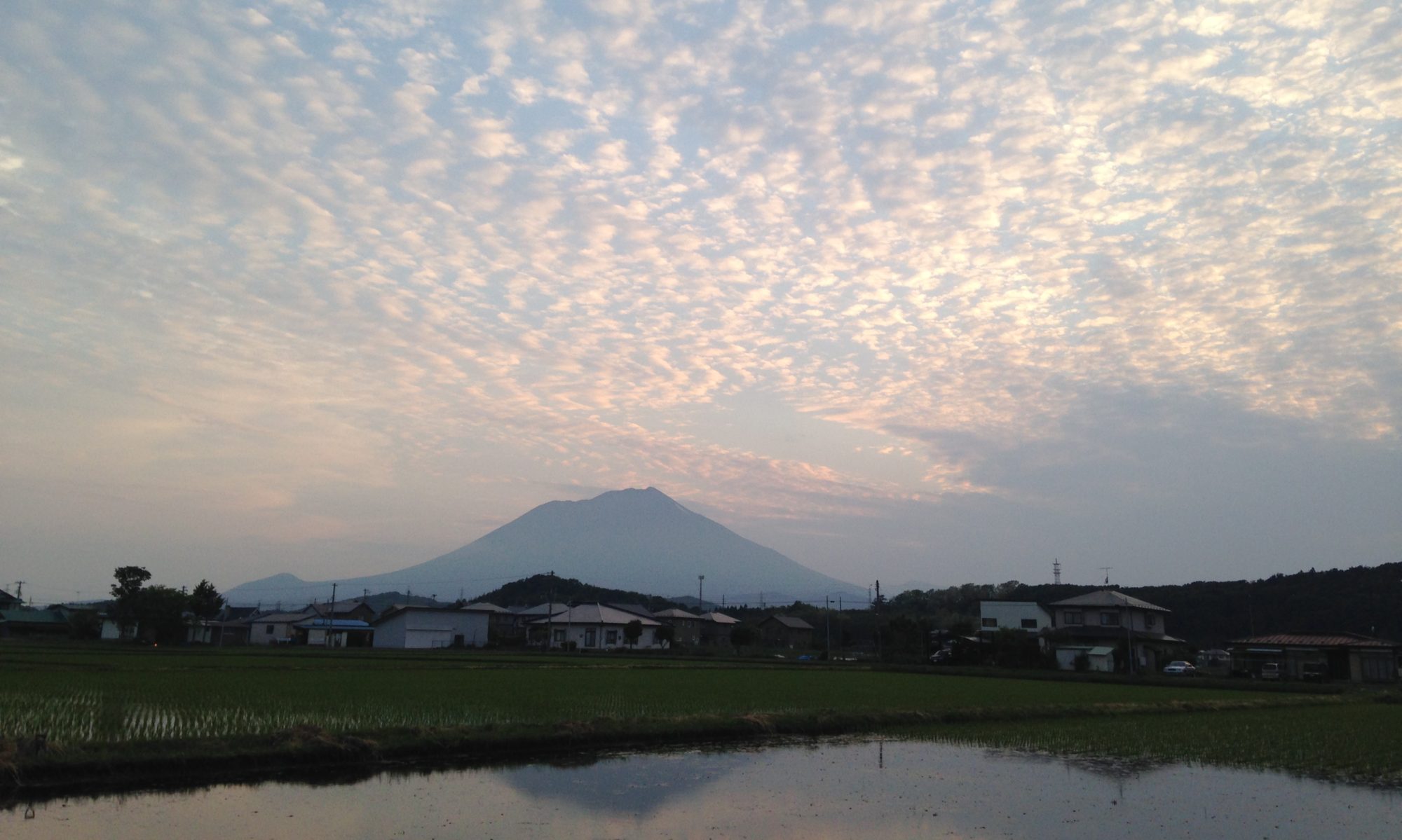Iwate Prefecture, located in northern Japan, gets its name, at least supposedly, from a legend.
The kanji characters used to write Iwate are the ones for “rock” and “hand,” 岩手.
This is commonly agreed to come from a legend known as Oni no Tegata (鬼の手形, the demon’s handprint). This legend is associated with the Mitsuishi Shrine (三ツ石神社, three-stone shrine) in Morioka City, the prefectural capital.
The relatively small shrine, a bit removed from the beaten path, holds three large stones, said to have originated in an eruption of Mt. Iwate.
Mt. Iwate is a large, conical, fairly quiet volcano which commands the horizon of Morioka. In the historical era, the mountain has been very quiet, and if these boulders truly came from an eruption, then it was either in the late 1700s or late 1600s, neither of which, as far as I can find, document any enormous boulders being shot several dozen miles away – indicating that this assertion and foundation of this shrine predates the historical era. The ensuing legend mentions Morioka Castle, which was constructed in the early 1600s, adding further support that these boulders and shrine predate any known eruption of Mt. Iwate within the confines of recorded history. Of course, people have been living in the area for much longer than people have been writing about the area, and when they did write, they did not capture everything nor interpret things in the same manner as is done these days.
While discussing Shinto, kami/gods, and where they come from is beyond the scope of this writing, suffice to say that natural objects capable of astonishing people, whether they are large or “there’s just something about them,” are sometimes considered to be deities, or to house deities. This is the case with Mitsuishi Shrine, the three stones being considered to either be or be home to the deity Mitsuishi.
One of these stones bears the mark of a demon’s hand. Or at least, it used to.
Back when Morioka Castle was a full-on castle and not just the foundation and ruins of a castle, it, like many castles, had a town surrounding it. A demon known in Japanese as Rasetsu (羅刹, a dictionary will state this is the Japanese name for a rakshasa, a human-eating breed of demon of Hindu origin – however, none of the Japanese sources I consulted mentioned this and instead read as though Rasetsu was the name of a demon) was terrorizing the town.
The townspeople prayed to the god Mitsuishi for assistance. The god Mitsuishi then bound Rasetsu to the rocks, and agreed to release the demon on the condition that it never hassle the people again. To seal the deal, the demon left a handprint on one of the boulders. The demon Rasetsu then fled to Mt. Nansho. The ensuing celebration became known as the Sansa Odori festival, which Morioka is known for.
Most accounts of this legend stop here. However, this legend drew my attention first when I studied abroad in Morioka, and returned when I returned to live there after finishing college.
When I studied abroad, I visited this shrine. The third boulder is housed inside a building now to protect it from the elements. I could see the print, but it was weathered and faint enough that I could see it only after being told precisely where to look for it. Like seeing a shape in the clouds.
A few years later, when I lived there, a friend of mine told me that in her youth (she was in her late 30s or maybe early 40s at the time) the print could be clearly seen. As in, it was obvious where to look, and that it was clearly a handprint, a large one at that. In other words, it wasn’t the weathering of hundreds of years that was making the print fade – the fading had occurred not only within her lifetime, but within something like the past fifteen years.
Third installment of Nine Months of Non-Fiction.

